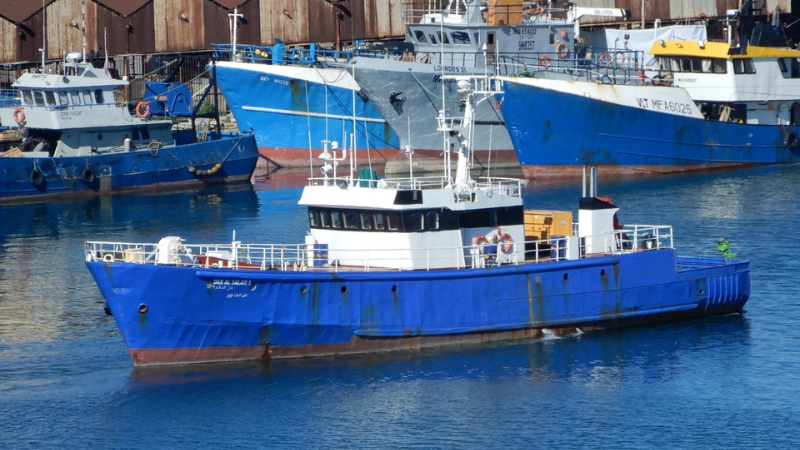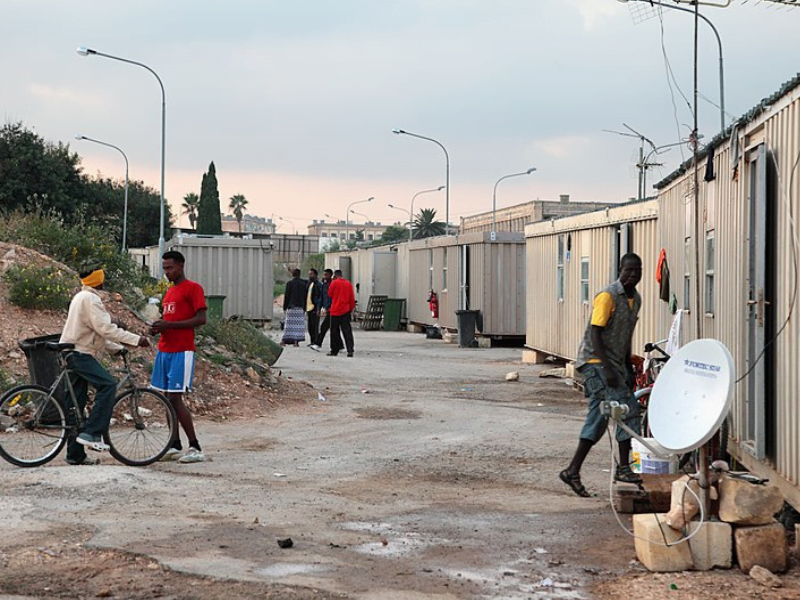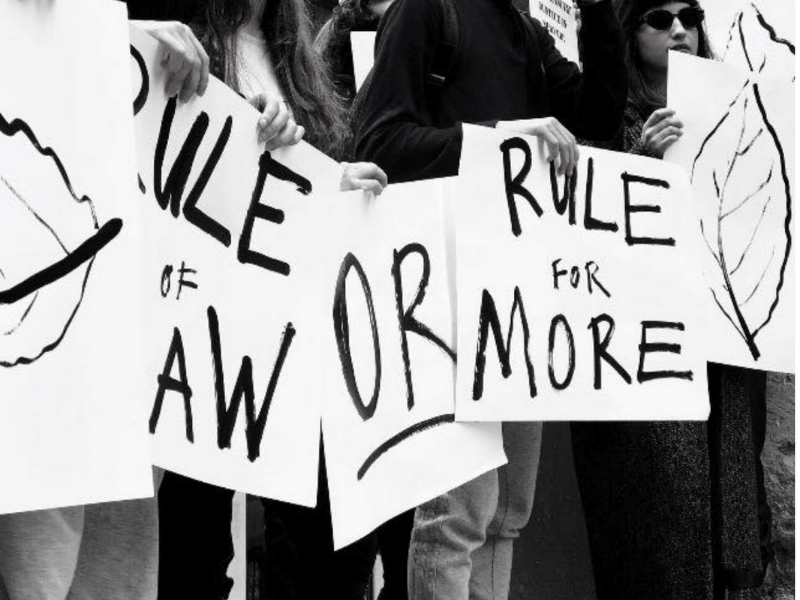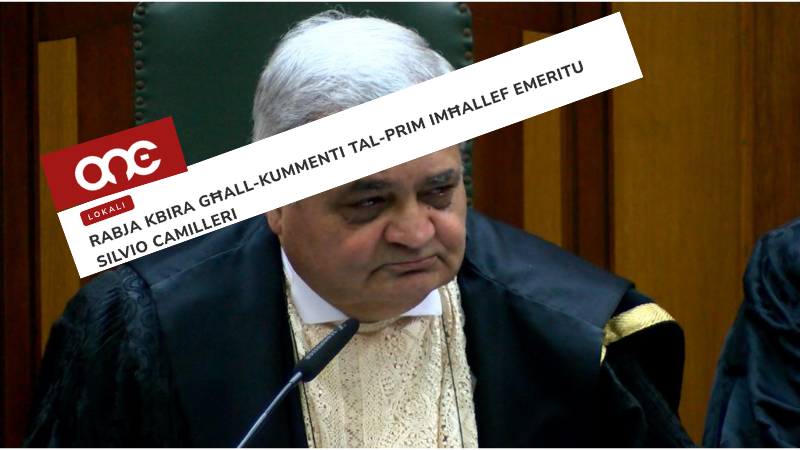Amnesty International has expressed concern that Malta’s rule of law reforms and human rights improvements could be “insufficient or superficial” given the slow pace of change and the government’s “inadequate” consultation with civil society.
The human rights organisation made the remarks in its input to the United Nations’ 2024 Universal Periodic Review on Malta and provides its feedback on a number of issues including rule of law reforms in the wake of the assassination of journalist Daphne Caruana Galizia, Malta’s search and rescue at sea obligations, human rights violations within its migrant detention regime, and sexual and reproductive rights.
Amnesty International refers to Malta’s “vast programme of rule-of-law reforms, triggered by the unlawful killing of Daphne Caruana Galizia” that is overseen by the Council of Europe’s Venice Commission and the European Commission.
Those reforms are meant to include justice system reforms, the introduction of anti-corruption mechanisms, and the strengthening of media independence and systemic checks and balances, including at constitutional level.
“However, the pace of change was slow and the meaningful consultation of civil society inadequate, raising concern that some of the changes could be insufficient or superficial,” Amnesty reports while criticising the fact that efforts to establish a National Human Rights Institution in line with the Paris Principles stalled.
It had harsh words for Malta when it came to migrant rights and the country’s arbitrary detention regime.
It noted how a 2020 visit by the European Committee for the Prevention of Torture (CPT) exposed the inadequacy of the Monitoring Board for Detained Persons to act as an independent mechanism for preventive monitoring of immigration detention.
When it comes to migrant search and rescue operations, Amnesty International called on the government to stop its violations of the right to life, to uphold the principle of nonrefoulement, the right to asylum and the right to liberty and security of persons against refugees, asylum seekers and migrants.
It also called on Malta to “promptly assist people in distress in Malta’s SAR region and ensure they are disembarked without delay in Malta or another place of safety, which Libya cannot be”.
People rescued at sea and disembarked in Malta should also be housed in open centres in adequate conditions and have access to asylum in line with international standards.
Public inquiry on violation of migrant rights
Amnesty International has called for an independent, public inquiry into violations of the rights of refugees and migrants at sea in the Maltese search and rescue (SAR) region.
The terms of reference of such an inquiry, Amnesty International said in its report for the United Nations must have “terms of reference and members able to command the trust of civil society”.
The human rights organisation also called for “thorough, independent and impartial criminal investigation” and that “any perpetrators are brought to justice in a fair trial for charges that reflect the gravity of the human rights violations involved” – with regard to the documented forced returns of people to Libya, failure to rescue incidents, and the arbitrary detention at sea of over 425 people (on a Captain Morgan tourist boat during the Covid-19 pandemic).
As for the latter case, Amnesty noted how the boats were not equipped for long stays aboard and the government had not provided legal grounds for the restriction of movement of the people on board and denied access to lawyers and independent organisations.
On 6 June 2020, they were all disembarked, some after nearly six weeks of arbitrary deprivation of liberty. In October 2021, 32 men sued the government for their unlawful detention in ferry boats. The case is ongoing.
Withdraw from the Malta-Libya MoU
Malta should also withdraw from the May 2020 Malta-Libya memorandum of Understanding and “ensure that any future cooperation with Libya on migration and border control is conditioned on the adoption of concrete and verifiable measures by Libya to protect the rights of refugees and migrants in the country.”
That MoU, Amnesty said, has led to more interceptions at sea by Libyan authorities and returns to Libya and as of June this year Malta “continued to pursue a deadly policy of deterrence, ignoring or responding slowly to distress calls from refugees and migrants at sea”.
It also notes how the Maltese authorities “resorted to unlawful practices to prevent people arriving by sea, such as delaying their rescue and pushing them back to Libya, where they would be at grave risk to their life and safety”.
Amnesty referred in particular to the ‘Easter Monday pushback’, in April 2020, the government contracted a merchant vessel and instructed it to return to Libya a group of people who had been in danger at sea for several days.

The Dar al Salam 1, captained by Carmelo Grech, which conducted the illegal pushback of 51 irregular migrants to Libya in April 2020 at the behest of the Maltese government.
According to survivors, 12 people died, some before being rescued and others during the journey to Libya. The 51 survivors were detained on arrival in Libya.
The survivors and the relatives of some of those who died filed a complaint before a Maltese court requesting the court to declare that Malta violated several of their human rights under the Maltese constitution and European and international law, including to claim asylum.
At a hearing in May 2021, a former senior official, Neville Gafa, confirmed organising several forced returns, including that of ‘Easter Monday’. The case is ongoing and Amnesty demanded that Malta provides “adequate reparations to survivors and the families of the victims”.
Arbitrary detention
Amnesty is also calling for an end to the practice of arbitrarily detaining refugees and migrants and ensure that no child is detained. The immigration detention system must also be reformed and alternatives to detention.
The state should also provide an independent and effective monitoring body that can access all places where refugees and migrants may be deprived of their liberty and be able to publish reports on its findings, in line with Malta’s international obligations.

Moreover, people rescued at sea seeking international protection need to be ensured access to Maltese territory without discrimination, and their human rights, including an accessible and adequate procedure, need to be fulfilled.
Moreover, it called for an investigation into whether “black people are facing particular obstacles to accessing Maltese territory and a procedure to claim international protection”.
The El Hiblu 3 case
Amnesty has been following the case of the El Hiblu 3 since its inception.
In March 2019, the police arrested three teenage asylum seekers (aged 15, 16, and 19 at the time), one from the Ivory Coast and two from Guinea, upon arrival in Malta on suspicion of having hijacked the ship which had rescued them to prevent the captain returning them to Libya.
They and some 100 others had left Libya in a rubber boat and been picked up by the merchant vessel El Hiblu 1.
The three were charged with grave offences, some punishable with life imprisonment.
In May 2019, OHCHR urged Malta to reconsider the severity of the charges and expressed concern about the asylum seekers’ initial detention in a high-security section of an adult prison and the failure to appoint legal guardians for the two children before their interrogation.
In June 2019, the Committee on the Rights of the Child (CRC) also expressed concern that the case of the two of them who were children at the time was being heard in an adult court rather than a juvenile one.
Following a long magisterial inquiry which Amnesty says failed to acquire key evidence in a timely manner, by June 2023 the three were still awaiting a decision on indictment by the Attorney General.
Amnesty International reiterated its call for the full decriminalisation of abortion by removing it from criminal law, dropping any current criminal charges and expunging the criminal records of anyone found guilty in the past.












